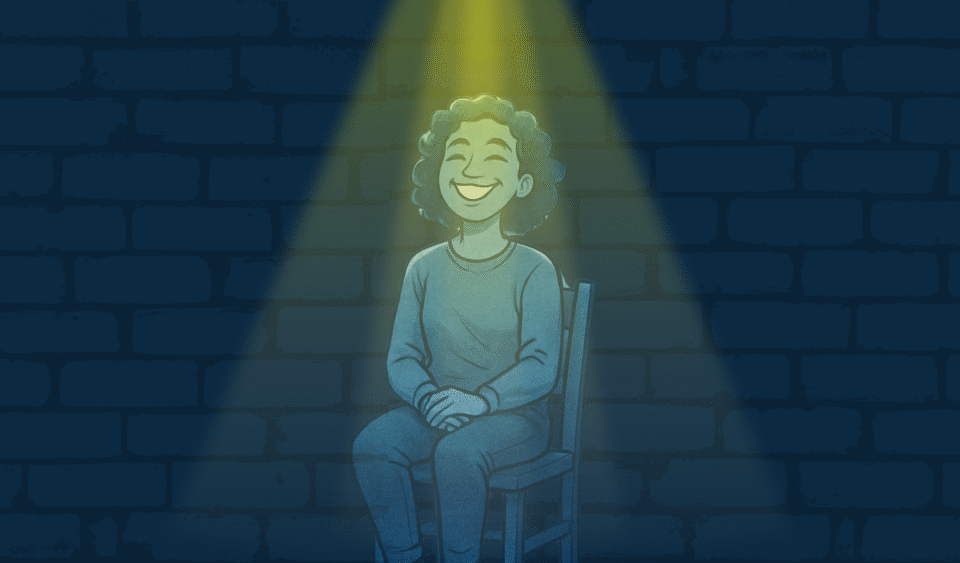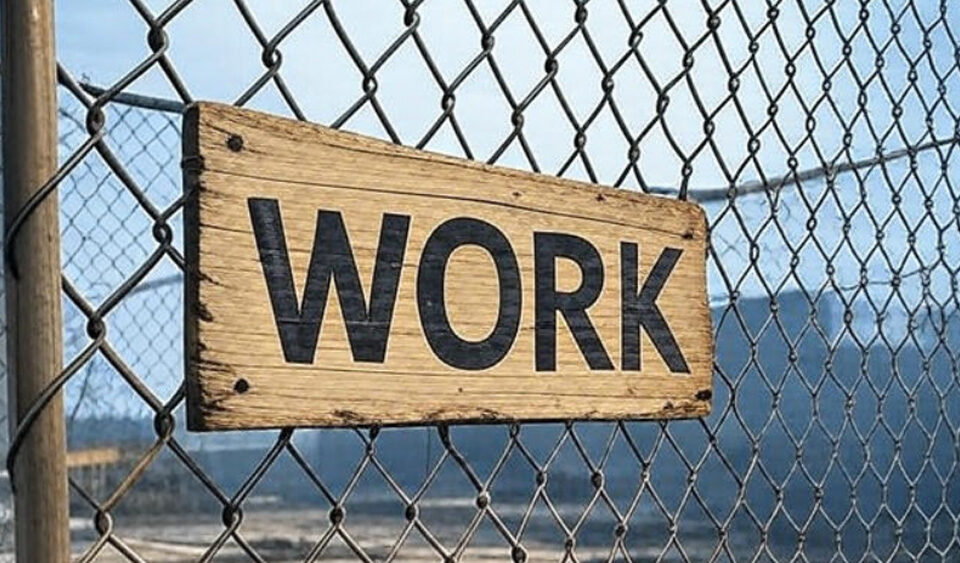Last night I watched grown adults lose their fucking minds at Newark.
My flight to Johannesburg got canceled after we’d already boarded, taxied to the runway, sat for three hours while maintenance tried to fix whatever was broken, then took us back to the terminal only to hear “Sorry folks, not happening tonight.”
It was midnight. We all had places to be – like on a plane somewhere over the Atlantic heading to South Africa. We were all exhausted.
What happened next was like watching a social experiment in emotional regulation. Or rather, the complete absence of it.
Some people completely shattered. Red-faced, veins bulging, screaming at gate agents who had exactly zero control over aircraft maintenance issues. Others dissolved into dramatic sobs, as if they’d just been told their family pet died instead of “here’s a meal voucher, come back tomorrow at 7pm.”
And for what?
Did the rage-filled tirade magically fix the plane?
Did the tears change aviation safety protocols?
The Price of Resistance
There’s this bizarre cultural myth that losing your shit somehow proves how important you are, how much your time matters, or how deeply you care. That emotional meltdowns are evidence of passion rather than poor regulation.
And don’t get me started on the people who take these meltdowns to social media. Not only is it pathetic and sad, but the whole performative theater of public rage is completely disconnected from actually solving any problem. It’s just recruiting an anonymous audience to witness your whining bullshit, feeding your own insecurities while you act like a complete idiot to people who have zero ability to change your situation. As if getting fifty validation comments somehow justifies your inability to handle basic disappointment like an adult.
But here’s what actually happens when you break character in these moments:
Your cortisol spikes. Your blood pressure rises. Your immune system takes a hit. Your cognitive function narrows to tunnel vision. Your decision-making ability plummets. And everyone around you, including those who might have helped you, instinctively wants to get the fuck away from you.
All while the situation remains exactly the same.
You’re still getting the same meal voucher. You’re still waiting until morning. The only difference is you’ve now spent your limited emotional resources on a tantrum that changed nothing except your own internal state.
Travel: The Ultimate Emotional Stress Test
I’ve come to see travel as the perfect laboratory for emotional resilience. No controlled environment exposes your relationship with control quite like moving through airports, foreign cities, or remote landscapes where literally nothing operates on your preferred timeline.
Travel strips away the illusion that your schedule matters to the universe. Delayed flights don’t care about your important meeting. Weather patterns don’t shift because you’ve been planning this vacation for months. Mechanical failures don’t fix themselves faster because you’ve got somewhere to be.
I’ve watched people throughout my travels completely unravel over minor inconveniences – a taxi arriving ten minutes late, an overbooked restaurant, a change in itinerary due to circumstances beyond anyone’s control, a slow passport control line when you’re tired. These moments reveal everything about how someone handles the gap between expectation and reality.
The Lakers losing to the Timberwolves in the playoffs, the canceled flight. None of the se things responded to my emotional state. All continued existing regardless of my feelings about them. The only variable I controlled was my response.
The Hidden Power Move
There’s a quiet power in being the person who doesn’t break when circumstances shift.
While others were screaming about connecting flights and having to change a pick up time, I found myself strangely calm. Not because I didn’t have places to be, but because somewhere along the way I realized a fundamental truth: my reaction to the situation was the only thing I actually controlled.
I watched the Lakers lose to the Timberwolves earlier that evening. That was disappointing too. Very. But the outcome of both the game and my flight situation shared the same reality in that my feelings about them wouldn’t change a damn thing.
The people who navigated this chaos best weren’t the loudest or most demanding. They were the ones who quickly accepted the new reality, preserved their energy, and pivoted to solving what could actually be solved.
They got to their hotel faster. They slept better. They woke up with resources to face the next day rather than an emotional hangover.
The Psychological Physics of Flow
There’s a psychological law of motion at play in these moments. The harder you push against an immovable reality, the more force you feel in return. The more you insist “this cannot be happening,” the more suffering you create.
Flow isn’t passive resignation. It’s not becoming a doormat or abandoning your needs. It’s strategic non-resistance to the unchangeable so you can focus your energy on what can actually be influenced.
The people melting down weren’t changing flight safety protocols or manifesting new planes.
They were just exhausting themselves fighting gravity.
The Revealing Moment
These crisis points don’t create character as much as they reveal it. The person who screams at the gate agent when flights get canceled is the same person who makes their partner walk on eggshells when dinner isn’t perfect. The one who throws a fit when the barista gets their order wrong. The one who as a manager snaps at staff for small mistakes. The one whose entire emotional landscape is built on the fragile foundation of “things must go my way.”
That’s not strength. It’s not importance. It’s emotional fragility masquerading as passion.
The Freedom of Acceptance
There’s a profound freedom in the quick pivot from “this shouldn’t be happening” to “this is happening, now what?”
The upgrade isn’t in your circumstances. It’s in your response to them.
We all ended up at the same hotel. We all had to be back at 7pm. We all faced the same disruption to our plans. But some people lost hours of sleep, spent the night in a state of toxic stress, damaged relationships – cause some couples had a proper go at each other – and started the next day already depleted.
Others accepted, adapted, and preserved their energy for things that mattered.
Same external reality.
Vastly different internal experience.
The Bigger Pattern
This isn’t just about flight cancellations. It’s about the countless moments life hands you circumstances you didn’t choose and can’t change.
The promotion that goes to someone else. The relationship that ends despite your best efforts. The health diagnosis that arrives without warning. The economic shift that eliminates your industry.
In each case, the initial resistance – the “this cannot be happening” phase – is nothing but suffering without purpose. It’s emotional energy spent on fighting reality rather than adapting to it.
The sooner you move from resistance to response, the sooner you reclaim your power.
The Real Self-Protection
Protecting your mental sanity isn’t selfish. It’s not a luxury or indulgence. It’s the most practical thing you can do when facing adversity.
Your emotional state is the foundation from which you solve problems, make decisions, and interact with others. When you sacrifice that state to performative outrage or collapse into self-pity, you’re undermining the very resources you need to navigate the challenge.
I’ve seen firsthand how quickly people reveal their deeper character when plans disintegrate. It’s in those moments, when the carefully constructed facade cracks, that you see what’s actually inside.
I’ve decided I’d rather be the person who bends than the one who breaks. Not because it’s morally superior, but because it’s simply more effective. More sustainable. More peaceful.
The next time your plans collapse, your expectations get shattered, or life hands you a massive inconvenience, ask yourself: Who do I want to be in this moment? The one who screams at the universe for disappointing them? Or the one who takes a breath, accepts what is, and focuses on what can be done from here?
Your sanity and the experience of everyone around you depends on your answer.
Stay safe.
And don’t forget to be awesome.







